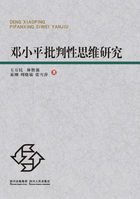MINISTER ADAMS troubled himself little about what he did not see of an enemy. His son, a nervous animal, made life a terror by seeing too much. Minister Adams played his hand as it came, and seldom credited his opponents with greater intelligence than his own. Earl Russell suited him; perhaps a certain personal sympathy united them; and indeed Henry Adams never saw Russell without being amused by his droll likeness to John Quincy Adams. Apart from this shadowy personal relation, no doubt the Minister was diplomatically right; he had nothing to lose and everything to gain by making a friend of the Foreign Secretary, and whether Russell were true or false mattered less, because, in either case, the American Legation could act only as though he were false. Had the Minister known Russell's determined effort to betray and ruin him in October, 1862, he could have scarcely used stronger expressions than he did in 1863. Russell must have been greatly annoyed by Sir Robert Collier's hint of collusion with the rebel agents in the Alabama Case, but he hardened himself to hear the same innuendo repeated in nearly every note from the Legation. As time went on, Russell was compelled, though slowly, to treat the American Minister as serious. He admitted nothing so unwillingly, for the nullity or fatuity of the Washington Government was his idée fixe; but after the failure of his last effort for joint intervention on November 12, 1862, only one week elapsed before he received a note from Minister Adams repeating his charges about the Alabama, and asking in very plain language for redress.
Perhaps Russell's mind was naturally slow to understand the force of sudden attack, or perhaps age had affected it; this was one of the points that greatly interested a student, but young men have a passion for regarding their elders as senile, which was only in part warranted in this instance by observing that Russell's generation were mostly senile from youth. They had never got beyond 1815 Both Palmerston and Russell were in this case.
Their senility was congenital, like Gladstone's Oxford training and High Church illusions, which caused wild eccentricities in his judgment. Russell could not conceive that he had misunderstood and mismanaged Minister Adams from the start, and when after November 12 he found himself on the defensive, with Mr Adams taking daily a stronger tone, he showed mere confusion and helplessness.
Thus, whatever the theory, the action of diplomacy had to be the same.
Minister Adams was obliged to imply collusion between Russell and the rebels.
He could not even stop at criminal negligence. If, by an access of courtesy, the Minister were civil enough to admit that the escape of the Alabama had been due to criminal negligence, he could make no such concession in regard to the ironclad rams which the Lairds were building; for no one could be so simple as to believe that two armored ships-of-war could be built publicly, under the eyes of the Government, and go to sea like the Alabama, without active and incessant collusion. The longer Earl Russell kept on his mask of assumed ignorance, the more violently in the end, the Minister would have to tear it off. Whatever Mr. Adams might personally think of Earl Russell, he must take the greatest possible diplomatic liberties with him if this crisis were allowed to arrive.
As the spring of 1863 drew on, the vast field cleared itself for action.
A campaign more beautiful -- better suited for training the mind of a youth eager for training -- has not often unrolled itself for study, from the beginning, before a young man perched in so commanding a position. Very slowly, indeed, after two years of solitude, one began to feel the first faint flush of new and imperial life. One was twenty-five years old, and quite ready to assert it; some of one's friends were wearing stars on their collars; some had won stars of a more enduring kind. At moments one's breath came quick. One began to dream the sensation of wielding unmeasured power.
The sense came, like vertigo, for an instant, and passed, leaving the brain a little dazed, doubtful, shy. With an intensity more painful than that of any Shakespearean drama, men's eyes were fastened on the armies in the field. Little by little, at first only as a shadowy chance of what might be, if things could be rightly done, one began to feel that, somewhere behind the chaos in Washington power was taking shape; that it was massed and guided as it had not been before. Men seemed to have learned their business -- at a cost that ruined -- and perhaps too late. A private secretary knew better than most people how much of the new power was to be swung in London, and almost exactly when; but the diplomatic campaign had to wait for the military campaign to lead. The student could only study.
Life never could know more than a single such climax. In that form, education reached its limits. As the first great blows began to fall, one curled up in bed in the silence of night, to listen with incredulous hope.
As the huge masses struck, one after another, with the precision of machinery, the opposing mass, the world shivered. Such development of power was unknown.
The magnificent resistance and the return shocks heightened the suspense.
During the July days Londoners were stupid with unbelief. They were learning from the Yankees how to fight.















